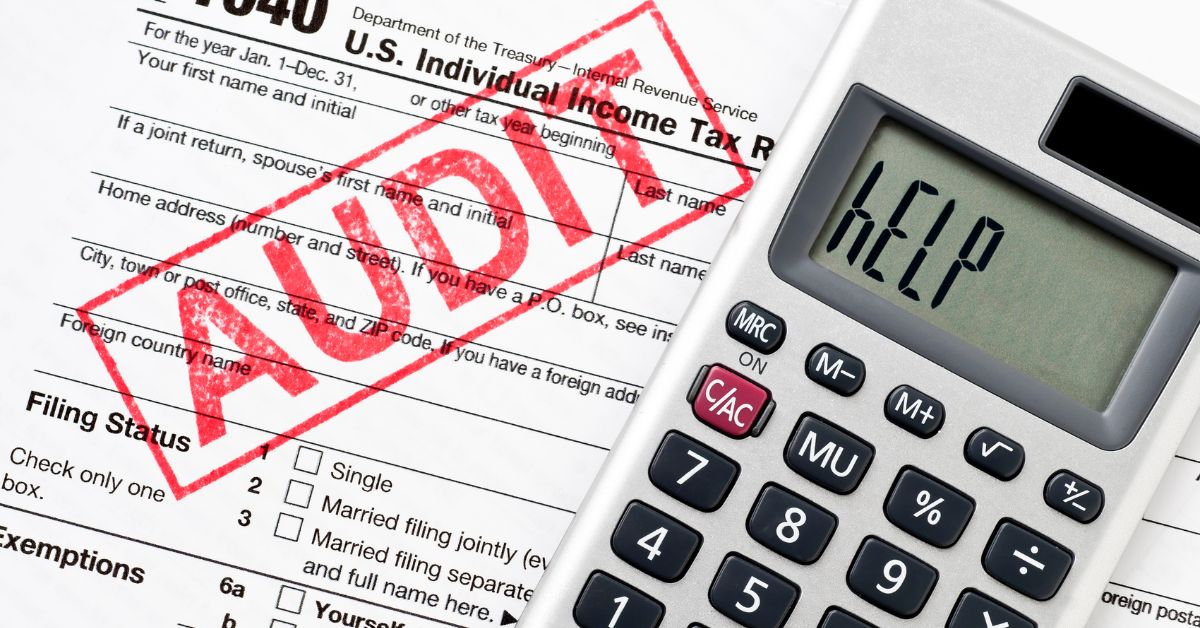Property investors need to know if they can carry forward losses on rental property. Carrying over losses helps investors offset their income.
You may not be able to deduct all your losses in one year. Carrying a loss balance over to the next year may help you offset your tax obligation in subsequent years.
However, you need to know how to carry over losses, what expenses qualify as deductible losses, and other important tax information to use this tax benefit. So, we created this guide to teach you everything you need to know, what records you need to keep, and how you can benefit the most from loss carryovers.
Rental property losses are expenses associated with the ownership and management of a single or multi-family home. Some of the most common losses a landlord may have are:
The money you spend to upgrade a property is not considered a loss for tax purposes. You can recuperate home expenditures over time. However, you have to do so over the useful life of the capital investment through depreciation deductions.
So, if you purchase a new roof that costs $7,500, you can't right that off at first. You have to wait until the following year and use a depreciation rate equal to the years you expect the improvement to last. So, a roof with a 10-year lifespan would have to depreciate at a rate of $750 per year.
If you have a list of capital expenditures, you will calculate the total depreciation for all your properties and include that in your annual losses. So, if you replaced the roofs of three homes over the last five years and each cost you $7,500, your yearly depreciation for all roof replacements is $2,250. That is the maximum depreciation deduction you can take.
One of the most beneficial things you can do as a property investor is to keep impeccable records of your income, losses, and capital expenditure depreciation figures for the year. Otherwise, it will be challenging for you or an accountant to determine what you can carry over. You must submit all property income and losses on Schedule E when you file your yearly tax return. You may also have to use one or more of the above forms to deduct these losses.

Schedule E gives the IRS an idea of the losses you are carrying over for each property. If the data does not match the Schedule E section of your previous year's taxes, it might send up a red flag to the reviewing agent. So, you want to submit complete and accurate data that you can back up with supporting documents.
For that reason, landlords need to keep certain documents, in some cases, for many years.
You must keep records when you collect rent, security deposits, and other income from tenants. If the renter does not pay through a traceable method, write them a receipt and keep a spreadsheet with each payment you collect. Other income information you need to retain includes:
Expense records are also critical for filing your taxes correctly. Keep records of every expense you incur, including:
If you meet certain IRS criteria, you can take a passive activity loss on your taxes as a rental property owner. To report passive activity losses, you may need to use one or more of these IRS forms:
You also need to generate your rental property income passively. Meaning it does not demand a significant amount of your time. The IRS considers the income you must dedicate more than 100 hours per tax year to generate as active income. Other limitations apply to passive activity income, as well.
However, the IRS generally classifies rental property revenue as passive activity income. So, landlords usually use the passive activity loss deduction when applicable. Furthermore, as an individual, you are allowed to generate income on more than one passive activity, but you must properly report each.
There is a limit on the losses you can deduct for passive activities each year. However, you do not lose these deductions. You can carry them over each year until you have no more losses to deduct or use them to offset capital gains when you sell the property. There is no limit on the amount of time you can carry over losses because you may not accrue losses each year. However, it may take years to recuperate all of your money because the IRS limits the losses you take for passive activities to income generated passively.
That means you can't use your passive losses to offset active income. Active income is any activity you are heavily involved in, or that requires a significant portion of your time to generate.
Examples of passive income would be dividends paid on stocks you own, rental property income, and other revenue you generate with every little required effort. Active income includes regular employment and self-employed activities which you engage in routinely and that are necessary to continue generating the income.
A person may have several sources of active or passive income. They can take deductions to offset both. However, the losses have to be generated from the activity they are offsetting.
The limitations do not mean that you are unable to deduct the expenses. However, you are only allowed to deduct up to the limits allowable for the passive activity in relation to how much income you generate. There may be additional limitations applied. However, you can continue carrying over any unused losses until you can deduct them in subsequent years or until you sell the property. At this time, you will deduct all outstanding losses.
You must keep accurate records as a landlord or passive income-generating property owner. If the IRS finds that you incorrectly filed deductions for losses, they can audit and adjust your tax account. It is not uncommon for the IRS to do this in the case of tax returns that are incorrectly filed, and it can leave you responsible for thousands of dollars in outstanding taxes from previous tax years.
If the IRS does adjust your tax account, you will need detailed records to fight the adjustment. So, you must keep records of all property-related expenses and management activities.
It is a good idea to invest in a trustworthy accounting program to track expenses and income for all of your rental properties or, at the least, to keep a spreadsheet with the information for each property. Whatever your accounting method is, you must stick with that method.
That does not mean that you can not use different data tracking tools. However, the IRS favors taxpayers who use a standardized method for recording profits and losses. Suppose you can prove that you have been using a single method for calculating the amounts you report. In that case, the IRS is less likely to take legal action against you if there is an honest error on one of your tax forms because you have documentation to support your calculations.
When you have one or two rental properties, you may not generate income substantial enough in the beginning to deduct property losses. However, you do not want to leave these deductions on the table because you will likely have a higher tax obligation as you add properties to your portfolio. The losses you incurred when you first started investing may come in handy to offset that income.

You will only be able to carry over losses that you can prove to the IRS. So, if you had $10,000 in losses in the first year, deducting the total losses may take several years.
Keeping detailed records of the carry-over losses and backup documentation will ensure that you can take advantage of carry-over losses when you really need those deductions. Furthermore, you will need this information to offset capital gains when you sell the property.
You can carry over losses for years until you sell your property. When you sell a property, you can offset capital gains with any outstanding losses you still have for the home. However, you will need records to present to the IRS to justify the losses. Inadequate evidence of the losses you claim may result in the IRs rejecting the deduction.
The adjusted cost basis for your rental property is relevant when you are filing your taxes, and you may need to calculate the adjusted cost basis and report it to the IRS at different times. To calculate the adjusted cost basis, you will need:
The formula for determining the adjusted cost basis is the purchase price plus improvements and closing costs minus depreciation deductions. You will need to report the adjusted cost basis when you dispose of the property. So, you must keep copies of the records that support your calculations.
Carrying over losses to the following year requires in-depth knowledge of tax codes that regulate the practice. So, it is best for real estate owners to hire a CPA with experience handling real estate taxes from passive income generated from rent or other property-related income streams. When hiring a CPA, you must check their credentials and experience.
Some CPAs are excellent at managing tax obligations for corporations, but they lack the knowledge necessary to counsel rental property owners adequately. If you currently use a CPA to file your taxes, you may want to continue using them. However, they may not be the best person to assist you with filing taxes carrying over passive activity losses.
Working with the wrong professional can cost you big time. The last thing you want is to end up with a significant tax bill that surprises you. When you hire a licensed professional, you usually trust that they know their specialty. That is not always the case, and they may not always be forthcoming about their lack of knowledge, especially if they may lose you as a client.
In business, nothing is personal, and as a landlord, your rental properties are your business, even if the IRS considers the income generated passive. A significant tax obligation can take years to pay off. Furthermore, if you cannot pay back owed taxes, the IRS will not take your primary residence to satisfy the debt, but it will seize rental property and 0ther assets.
A few questions you should ask a new CPA are:
Knowing how the CPA plans to handle your taxes and what their professional opinions or approach to complicated tax laws apply to you will help you determine if they are the correct person for the job.
Using a reputable property management company is another way to protect yourself as a landlord. A worthwhile management company will provide you with the necessary data to file your taxes at the end of the year. So, you do not have to worry much about your record keeping. Fees paid to a management company are considered losses you can deduct, provided you have the passive income to offset.
A tax attorney is not necessary in most cases. However, if you are being investigated or audited by the IRS, it is always a good idea to have a knowledgeable tax attorney on your side.

If you can find a reasonable tax attorney, they are often better equipped to navigate complex tax laws than an average CPA. You may also want to consider hiring a tax attorney if you acquire an extensive portfolio of passive activity income properties.
When a tax attorney prepares your taxes, the IRS knows your attorney will answer if they audit your tax file. The agent also knows you likely have documentation to support your reported amounts because the tax attorney requires this documentation when preparing your return and submits the appropriate documentation.
An IRS audit can be stressful and intimidating. However, the IRS randomly audits taxpayers. So, you should be concerned about keeping accurate records and correctly filing your returns. If you filed incomplete returns in the past, you might need professional help.

If you used a CPA or tax attorney to complete and file your returns, they should help you during the audit process. If you filed your returns, you might want to have a tax attorney review your IRS submissions to ensure they are all correct. Amending a return to correct inaccurate data is often better than allowing the IRS to uncover a return you filed incorrectly.
However, a tax attorney will advise you on the best course of action during an IRS auction, and hiring one will put your mind at ease.
Carrying forward losses on a rental property is your right as a taxpayer. Understanding how to do that correctly is your responsibility, though. To ensure you fully understand your rights and obligations, look at the answers to these frequently asked questions about passive activity loss cacarryoversHow Long Can You Carry Forward Losses on Rental Property?
You can indefinitely carry over losses yearly for as long as you own the income-generating property. When you finally sell the property, you will have the opportunity to deduct any outstanding losses from your capital gains. However, to avoid an audit or prepare in case you are ever subject to one, you must keep detailed records of all the profits and losses for your rent-generating properties.
There is not one specific place on your tax return where you report all rental property losses. You may need to use several IRS forms to report losses depending on the passive activity you are engaging in and the deductions you plan to take.
The IRS will not allow you to deduct more losses than the income you are generating. Any losses above the limit you may carry over to the following year. Each year you may deduct some losses and accrue additional ones that you must carry over to apply on future returns.
You can write off all property expenses except capital investments. Capital expenditures include renovations, roof replacements, upgrades, and other improvements that provide more than a year of value. Capital gains expenditures are tax deductible like other losses. However, you must take these deductions over the useful life of the expense.
So, if you add a pool that costs $50,000, the useful life is likely around 25 years. So, you would be able to take a yearly depreciation of $2,000 to recuperate those funds. When you sell your property, you will calculate the adjusted basis of the property by adding the purchase price, investments, outstanding losses, and fees associated with owning the property and subtracting any depreciation deduction you have taken.
The adjusted cost basis is reported to the IRS along with the sales price when you sell a rental home. The IRS uses the two figures to determine your capital gains for the transaction.
The IRS considers rental property income as a passive activity. Therefore you can only deduct losses from passive activity income. If you do not have enough income to offset your total losses for the year, you may carry over those losses and use them to offset your passive income in the future.
Carrying over losses can complicate your tax returns. However, you are leaving a lot of money on the table by neglecting to carry over and apply losses as deductions during years when you need to offset income.
Carrying over a loss is much easier after you know what forms to use and have experience filling them out. In the first few years, you file returns with passive activity income and losses. You might question the accuracy of the information you file. After you become more familiar with the tax laws regulating passive activities, you will feel more confident handling them.
However, if you are unsure how to record and apply losses on a rental property correctly, you should strongly consider hiring a CPA or tax attorney to do it for you. The money you spend to have a professional handle these complicated tax matters is well worth the cost to avoid an audit or unexpected tax penalties because you inaccurately filed.
We encourage you to share this article on Twitter and Facebook. Just click those two links - you'll see why.
It's important to share the news to spread the truth. Most people won't.